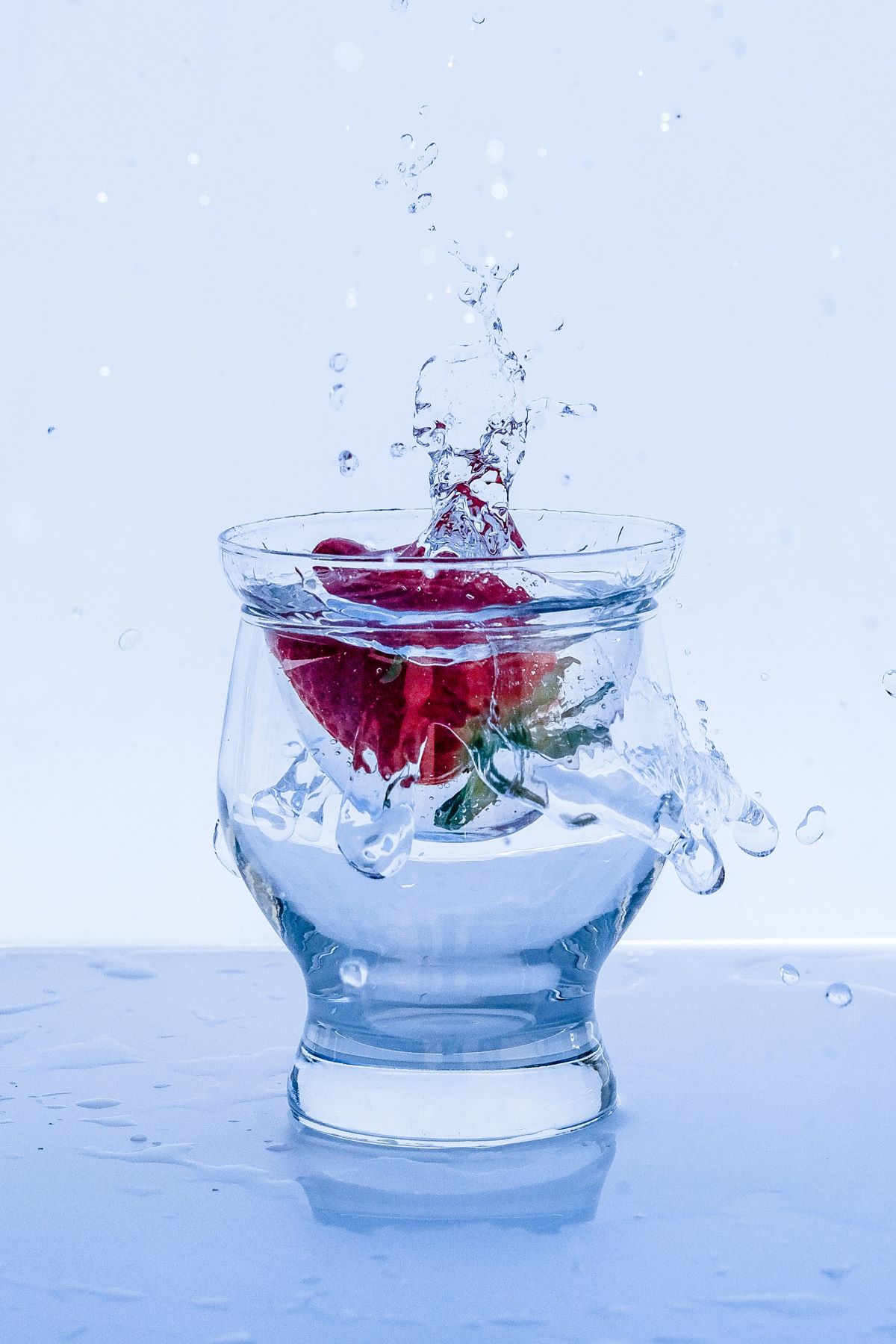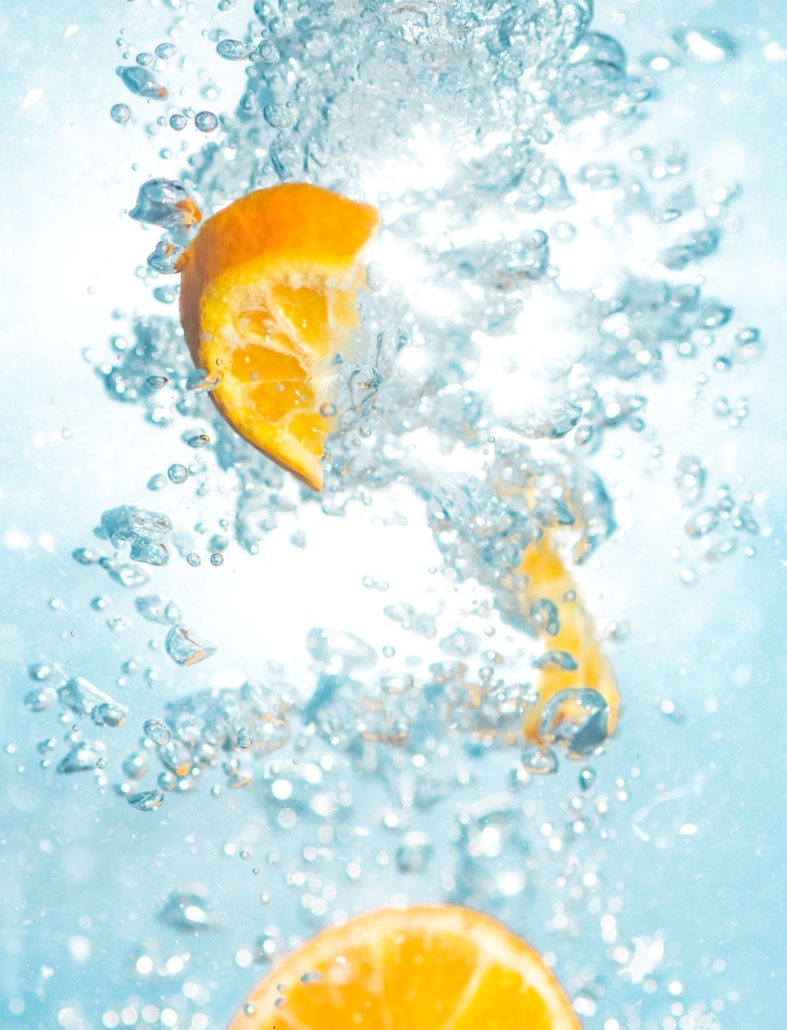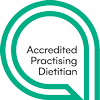Vitamin-enhanced waters – what you need to know
It seems there isn’t a week that doesn’t go by at the moment without coming across advertising for vitamin-enhanced waters – whether it’s a billboard at the train station or the local supermarket or freebies being handed out at the station. I know it’s summer, but it feels like there’s been a significant uptick in marketing around these drinks (in Switzerland) in recent months. Have you noticed this?
In this post, I’m answering all your questions about vitamin-enhanced waters through a non-diet lens – which means I won’t be demonising these drinks on the basis of their energy content.
What are vitamin-enhanced waters?
Vitamin-enhanced waters are essentially flavoured water drinks with added vitamins and minerals in a bottle. In Switzerland, vitamin-enhanced waters currently contain a combination of the following vitamins and minerals: water-soluble vitamins including vitamin C, and a variety of B-group vitamins along with some fat-soluble vitamins including vitamins D and E and some minerals like zinc and magnesium, with some brands providing 75-100% of the recommended daily allowance of vitamins for adults in one 500ml bottle. A few of them contain caffeine too.
Coming in hues of pink, peach, yellow, red, green and violet, they look so much more exciting than plain regular water! And they sound like a great idea too: our body needs both vitamins and water so, combining the two – vitamins plus water – to create a colourful “healthier”-sounding, fruity-tasting tonic seems like genius. And that’s exactly how they’re being marketed – as a “healthier” option to both regular water and other bottled drinks because they contain vitamins and minerals (and less energy in comparison to many other bottled drinks).
Can I believe the marketing?
Of course, the makers of vitamin-enhanced waters want you to think you need their product and that it will change your life so you will be persuaded to buy it. Here are just a few examples of the way they are doing this. Stressed? Try blueberry and lavender vitamin water “Relax”. Need an energy boost? Then buy peach and apple-flavoured “Kick”. The secret energy ingredient? Caffeine! Want to focus more clearly? Drink citrus and guava-flavoured “Think” – and not only will you think more clearly, you’ll seem clever and smart (I wish I was kidding about this part). Are these claims supported by robust science? No. They’re typically an exaggeration or misinterpretation of the science. For example, while caffeine does act as a stimulant on your brain so you might feel like you have more energy after drinking a beverage containing it (temporarily at least), in nutritional terms caffeine doesn’t provide any energy and it’s not providing your body with fuel.
Do we need the vitamins & minerals these drinks provide?
There’s no denying these drinks are refreshing, convenient, and taste good to many people. But do we need the vitamins and minerals they deliver?
Most of us don’t need vitamin-enhanced water to help us meet our nutritional needs. Our bodies are incredibly adept at getting the nutrients we need from the foods we eat. Eating a variety of foods based on three meals a day with snacks, and including all food groups, provides most of us with what our bodies need*.
And not only are our bodies very good at getting the nutrients we need from the foods we eat, they don’t store water-soluble vitamins, so any extra B vitamins and vitamin C you get from these drinks just end up getting excreted in your urine.
*In certain situations, some people may need to supplement their food intake with specific vitamins or minerals. For example, a folate supplement is recommended before and during the first three months of pregnancy and vitamin B12 is recommended if you are vegan. However, for many people, eating enough and a variety of different foods is sufficient.
Does consuming extra vitamins & minerals protect against cancer & cardiovascular disease?
Drinking vitamin-enhanced waters probably won’t provide you with any significant nutritional benefits either when it comes to preventing cancer and cardiovascular disease. A recent meta-analysis showed vitamin and mineral supplementation was associated with little or no clinically important benefit in preventing cancer, cardiovascular disease, and death, with the exception of a small benefit for cancer incidence with multivitamin use (and these studies had notable limitations).
Is there any potential for harm?
People often believe that vitamins are safe and that even if they don’t result in any benefit, they are unlikely to cause harm. That’s because we typically think about vitamins in terms of deficiency and getting too many of them is a scenario we rarely consider. But it is, increasingly, a real possibility. Imagine you’re taking a daily multivitamin along with a vitamin D supplement, for example – and eating a varied diet that contains foods fortified with vitamin D, you begin to see how the amount of vitamin D you consume can start to add up from different sources and how getting too much of certain vitamins and minerals might happen, without you even realising it. You might not reach very high intakes of a certain vitamin or mineral that result in overt signs of toxicity, but it is possible to consistently exceed the recommended daily intake for some vitamin and minerals. And we really don’t know what effect (if any) this has on the human body over time.
This is particularly so when it comes to the fat-soluble vitamins A, D and E. Unlike water-soluble vitamins, fat-soluble vitamins (like the vitamin D and E contained in some vitamin-enhanced waters) are stored in and can build up in our bodies over time – meaning there is potential for harm when these vitamins are consumed regularly over time in amounts that exceed the recommended daily intake. A recent meta-analysis showed, for example, that consuming additional beta carotene (a vitamin A precursor) was associated with an increased risk of harmful outcomes including lung cancer.
Other concerns
Even when we see through the marketing hype, there’s some other, more subtle messaging that has the potential for harm. I worry a lot about how people (in particular teens and young people at whom most of the marketing seems to be aimed) might interpret the diet culture-inspired messaging around these drinks, like “goodbye calories, hello vitamins!” As a non-diet dietitian, I don’t want kids to grow up thinking calories are a bad thing. I want them to know calories are simply a unit used to describe the fuel or energy value of food. And that their body needs to be adequately fuelled with food. I’m concerned too they’ll start to think they can get all the vitamins and minerals their body needs from vitamin-enhanced waters. And I don’t want them to grow up believing they don’t have to eat food because they can get all the vitamins and minerals they need from a bottle of vitamin-enhanced water.
What’s the bottom line?
If you enjoy the taste of vitamin-enhanced water and find it refreshing there’s likely no harm in enjoying a bottle every now and then. If you’ve been drinking them for any other perceived benefits, remember that while supplements, pills, powders and drinks may seem like an easy solution to meet your nutritional needs, they can never substitute for a varied diet. Eating a wide range of foods provides the full range of essential vitamins and minerals that work synergistically in the body. Also, getting the nutrients you need from food, offers numerous other benefits, including: better absorption of nutrients, minimal risk of toxicity (since it’s very difficult to overdose on vitamins and minerals through food), fibre, and other beneficial plant compounds that just aren’t present in pills, powders and drinks supplemented with vitamins and minerals.
Ready to take the next step? Contact me and request a complimentary call to find out more about Intuitive Eating and how it can help you truly nourish yourself – body, mind and soul.





